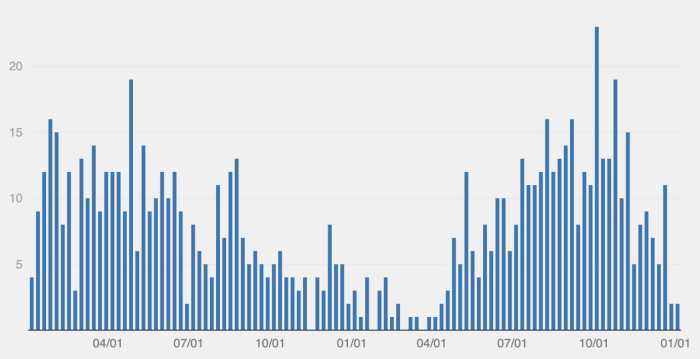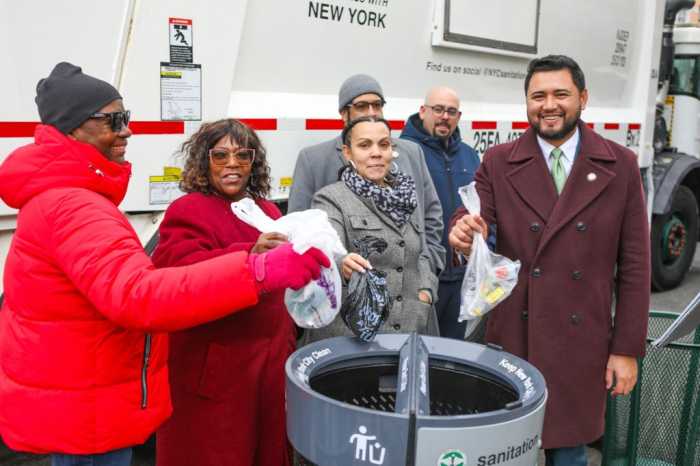Health officials stress benefits of sharing patient information with other localities
The city’s Department of Health and Mental Hygiene (DOHMH) is defending its proposals to more widely share information that it currently collects on people with HIV with doctors and other health departments.
As part of a project funded by the federal Centers for Disease Control and Prevention (CDC), the 12 jurisdictions with the highest AIDS prevalence proposed three-year HIV prevention plans. Those plans, which were submitted to the CDC in April of this year, were posted on the CDC’s web site on November 16.
Among some proposals that could be controversial, the DOHMH wants to share its data on any person with HIV with other health departments across the country. New York’s state health department has taken what may be an initial step in that direction.
“[The state health department] has recently proposed amendments to its HIV regulations allowing HIV surveillance information to be disclosed to authorized public health officials in other jurisdictions for the purposes of case deduplication,” the DOHMH wrote in an email to Gay City News. “The additional information we want to share relates to whether or not they are engaged in medical care for their HIV infection in New York City.”
The DOHMH receives viral load test results, which show how much HIV is in a person’s blood; T-Cell counts, which indicate the state of a person’s immune system; and drug resistance tests, which document which anti-HIV drugs an individual’s virus has resistance to.
The city health agency wants to be able to share all of its data on an HIV-positive individual with another jurisdiction should that person move there.
“It is important not to overlook the potential benefit of this change to the index patient who leaves NYC for a new jurisdiction,” the DOHMH wrote. “In such times of transition, the continuity of HIV-related medical care is at especially high risk of interruption, which can negatively affect health. If NYC is allowed to communicate with the new jurisdiction about the patient who is moving there, health department staff in the other jurisdiction can assist the newly-arrived patient with linkage to care in the new area.”
Currently, 34 states criminalize exposing others to HIV or having sex with someone without disclosing one’s positive HIV status. The concern is that New York City’s health department could supply evidence that might contribute to a criminal prosecution.
“Were this change implemented, we would not transfer information received regarding whether or not the HIV-infected index patient had disclosed to their named partner(s),” the DOHMH wrote.
The state health department has proposed new regulations allowing local health departments to retain the names of the sex partners of HIV-positive individuals for three years after any investigation into those sex contacts is completed. Currently, local health departments must purge those names after one year. The DOHMH wanted to keep those names indefinitely or, at a minimum, for ten years.
According to data supplied by the DOHMH, in any given year, it maintains a database of roughly 800 to 1,200 HIV-negative individuals who had sex with an HIV-positive person.
Other proposals had already been rejected by the time CDC posted the plans, or they appear to be stalled.
The DOHMH wanted access to Medicaid pharmacy billing records. That would show the anti-HIV drugs that an individual was prescribed and is presumably taking. The pharmacy data combined with the test results the DOHMH receives would let the agency monitor how HIV-positive Medicaid beneficiaries are doing on a particular drug regimen. That plan was scrapped.
“Continued internal discussions concluded that more readily accessible data might be better used to support client adherence at the program level. For this reason, a protocol of this nature has not been developed at this time,” the DOHMH wrote.
In 2006, Thomas Frieden, who was then the city’s health commissioner –– and is now director of the CDC –– made a similar proposal, but he wanted the DOHMH to be able to contact an individual’s doctor if the viral load, T-Cell counts, and drug resistance information showed a person with HIV was doing poorly. That proposal was angrily resisted by some AIDS groups and their clients, and it did not result in any new policy.
The DOHMH wanted to have a meeting between “senior staff from NYC DOHMH and NYPD” to “discuss cross-cutting issues of policing and public health” by October of this year. That meeting has not taken place.



































